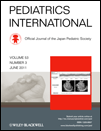Methylenetetrahydrofolate reductase C677T polymorphism in patients with Henoch-Schönlein purpura
Abstract
Aim: Associations between several vascular diseases such as Kawasaki disease, venous and arterial thromboembolism, cardiovascular disease, diabetic nephropathy, focal segmental glomerulosclerosis and methylenetetrahydrofolate reductase (MTHFR) C677T polymorphism have been reported. This is a clinical study designed to investigate the possible effects of MTHFR C677T polymorphism on the development of Henoch-Schönlein purpura (HSP).
Methods: Forty-one patients with HSP (25 male/16 female) with a mean age of 7.8 ± 2.9 years were included in the study. The control group consisted of 50 healthy children. MTHFR genotypes were determined by polymerase chain reaction and by Hindf I restriction enzyme analysis and subsequent 3% agarose gel electrophoresis techniques.
Results: No significant differences were observed in the distribution of MTHFR genotypes or allele frequencies in the HSP cases versus controls. Plasma homocysteine levels and vitamin B12 levels were almost comparable in the HSP patients and control group without a significant difference. Folic acid levels were within normal limits in the HSP cases and the control group, HSP patients' levels being significantly higher than the control group. No significant relationship was present with the MTHFR genotype and plasma homocysteine, vitamin B12 and folic acid levels in HSP patients.
Conclusion: No association with MTHFR gene polymorphism and homocysteine plasma levels could be found in patients with HSP. The results of this study indicate that other mechanisms should be operative in the development of HSP.




